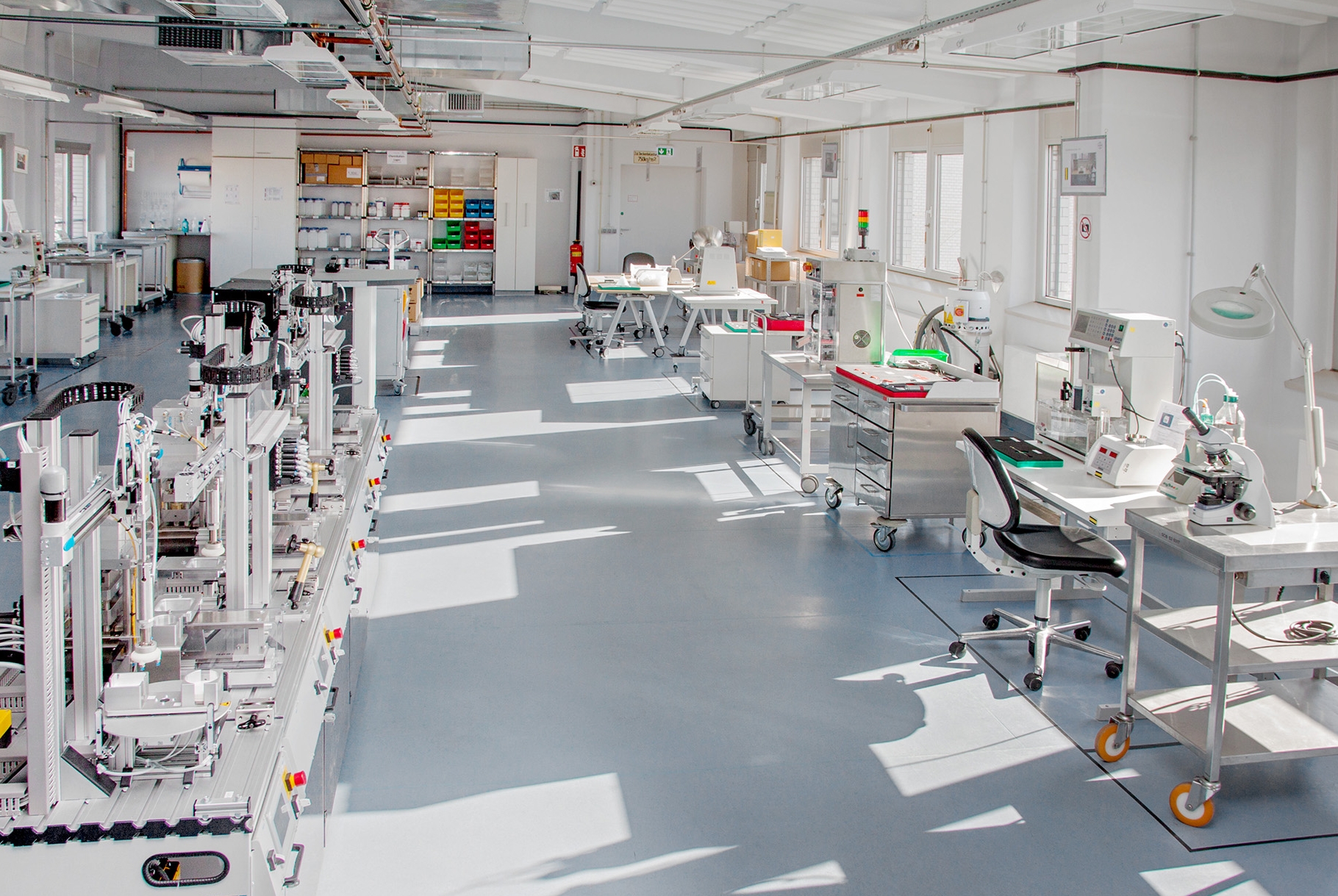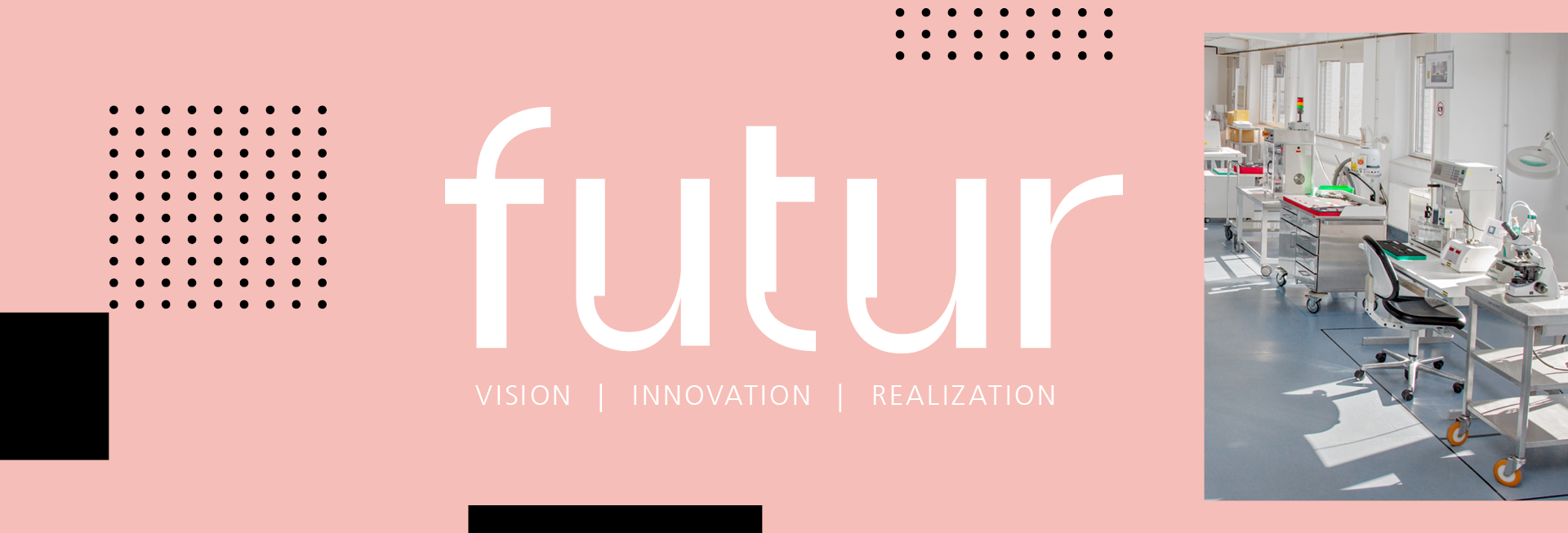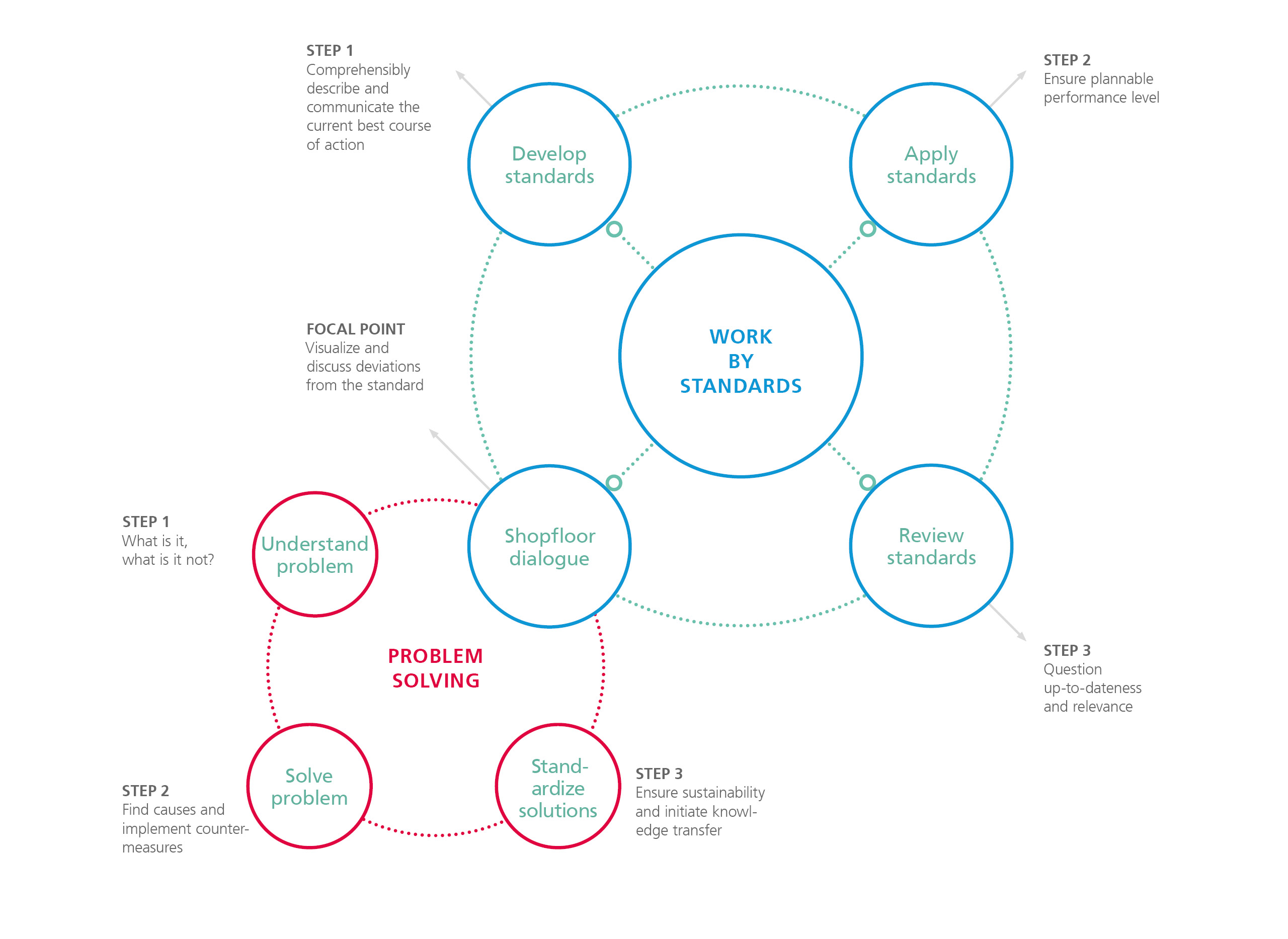Pharmaceutical Production Made Efficient

Safe and affordable medication is essential to the healthcare system. And, bearing in mind the need for rapid distribution of COVID-19 vaccines: Shortest possible delivery times are at least of equal importance. Pharmaceutical production must face these and other challenges, and at the same time not only supply patients, but also convince regulatory authorities. How can this be achieved?
According to a Fraunhofer IPK partner from the pharmaceutical sector, the foundation for stable and efficient production is operational excellence through consistent Lean management. Lean management follows the aim of optimally coordinating all activities in the value chain and avoiding superfluous tasks. However, the approach only works, if employees actively apply it. Hence, the minds in a company are the most important resource for achieving operational excellence.
Fraunhofer IPK’s research-based pharmaceutical partner employs an in-house Lean production system tailored to its specific needs. In order to support the engagement of employees, the company has joined forces with Fraunhofer IPK, TU Berlin and ITCL GmbH to set up its own learning factory in Berlin, the LEAN Factory. It is designed to do more than just impart knowledge. The training courses in the learning factory are to enable employees to contribute actively to operational excellence.
Hands-on Experimentation
In essence, the LEAN Factory is a simulated tablet production facility where learning takes place in a practical fashion. Employees experiment actively and learn through first-hand experience – in an environment which closely mimics the actual company, but without affecting the ongoing pharmaceutical production. This way, the courses in the learning factory demonstrate how Lean management can work in the pharmaceutical industry. After all, not all approaches can simply be copied from the automotive industry. Dividing up chemical processes into equal process segments lasting an arbitrary period of time accurate to the second – seems rather impossible. Synchronizing laboratory samples and batches in production such that products can be released more quickly, is however perfectly feasible. Case examples, plenty of time for discussion and constantly switching between the seminar room and production help reinforce what has been learned.
The training courses have been designed so that they can be adapted to participants from a broad mix of company divisions, as the circumstances in the different plants and work areas vary. Factors that may be commonplace in production may be new in administrative processes. Instead of giving participants a »one-fits-all« toolbox, it is made clear how the individual elements of the production system are interrelated so that the appropriate solutions can be developed on site – in a manner that is independent yet based on global standards.
Helping to shape the production system
Shopfloor dialogues, in which the current performance is examined, form the core of the production system. They are based on standards for daily work that are defined, applied, and continuously reviewed. Shopfloor dialogues allow for the rapid identification of deviations, both positive and negative. Such deviations are discussed in the shopfloor dialogues in order to identify suitable measures. Positive deviations can be utilized to immediately improve standards, while negative ones trigger problem solving. In turn, a problem that has been solved results in a new or improved standard.
To correctly learn how standardization works, participants in the learning factory are sent directly to the tablet press and granulator. They learn to describe the relevant changeover processes as visually and clearly as possible. Subsequently, participants review each other’s results in a small competition for completeness and clarity and discuss best practices. As an introduction to the real-world aspects of shopfloor dialogs, participants role-play possible scenarios at the end of a shift, with increasing levels of difficulty ranging from packaging material delays to teamwork problems. Problem-solving skills, on the other hand, are trained using specific issues faced by the participants. In many cases the teams come up with ideas that they can immediately implement back at the workplace.
Training to inspire
Upon completing the training, it is not just about key learnings of Lean management. Employees should, more importantly, want to apply what they have learned to their own area of work. In order for this to succeed, the courses begin with the managers. For them, the focus is not on how a changeover can be performed as efficiently as possible, but how to motivate their own team and support them with the necessary resources. Hence, courses at the learning factory also include role plays where the technician is permitted to fold his arms and defiantly reply: »I really have more important things to do now than sorting and rearranging.« To prepare management for such situations on the shopfloor, the learning factory is visited by groups ranging from future foremen to the entire management team of a facility.
After more than seven years of collaboration and 2000 colleagues receiving training, the conclusion is: Practical exposure generates enthusiasm. Whether it is re-organizing a chaotic production setup, personally setting up the tablet press, or role-playing – the theory section needs to be brief and the exercises highly varied. What is important is exchanging different points of view. The company’s internal trainer presents the situation within the company. The Fraunhofer IPK trainer provides an unadulterated, external perspective. But participants also learn a great deal from each other. When employees from different sites and divisions discuss their experiences, they also share their own difficulties and the solutions they have successfully implemented. Alternatively, a team may come together to get in sync and establish a common understanding of the implementation. Since this is important across the globe and it is not possible for employees from all locations to fly to Berlin (even without COVID-19) e-learning is already being used for a number of topics. But the practical examples from the LEAN Factory remain. And the reverse approach is also being practiced: Particularly when it comes to workshops or operational implementation, trainers come directly to the employees on the line.
 Fraunhofer Institute for Production Systems and Design Technology
Fraunhofer Institute for Production Systems and Design Technology
